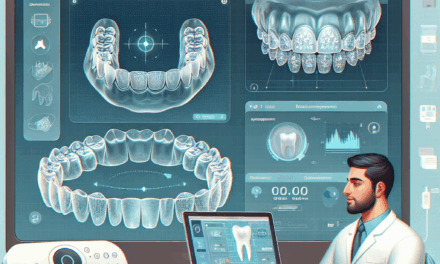Tips for Naturally Keeping Cholesterol Levels Healthy

Cholesterol is a waxy substance found in your blood, essential for building healthy cells. However, having high cholesterol can increase your risk of heart disease. The good news is that you can manage your cholesterol levels naturally through lifestyle changes. This article explores effective strategies to maintain healthy cholesterol levels, supported by research, examples, and statistics.
Understanding Cholesterol: The Basics
Before diving into tips for managing cholesterol, it’s crucial to understand what cholesterol is and how it affects your health. Cholesterol is carried through your bloodstream by lipoproteins, which come in two main types: low-density lipoprotein (LDL) and high-density lipoprotein (HDL).
LDL vs. HDL Cholesterol
LDL cholesterol, often referred to as “bad” cholesterol, can build up in the walls of your arteries, leading to atherosclerosis, a condition that can result in heart attacks and strokes. On the other hand, HDL cholesterol is known as “good” cholesterol because it helps remove LDL cholesterol from the arteries.
Maintaining a balance between these two types of cholesterol is crucial for cardiovascular health. According to the American Heart Association, an optimal LDL level is less than 100 mg/dL, while an HDL level of 60 mg/dL or higher is considered protective against heart disease.
The Role of Triglycerides
Triglycerides are another type of fat found in the blood. High levels of triglycerides can also contribute to the hardening of arteries or thickening of the artery walls, increasing the risk of stroke, heart attack, and heart disease. A healthy triglyceride level is less than 150 mg/dL.
Understanding these components of cholesterol is the first step in managing your levels effectively. Now, let’s explore natural ways to keep your cholesterol in check.
Dietary Changes for Cholesterol Management
One of the most effective ways to manage cholesterol levels is through diet. What you eat can significantly impact your cholesterol levels, and making informed dietary choices can lead to substantial improvements.
Incorporate Heart-Healthy Foods
Eating a diet rich in heart-healthy foods can help lower LDL cholesterol and improve overall heart health. Some foods to consider include:
- Oats: Rich in soluble fiber, oats can reduce LDL cholesterol levels. A study published in the American Journal of Clinical Nutrition found that consuming oats can lower LDL cholesterol by 5-10%.
- Nuts: Almonds, walnuts, and other nuts are high in unsaturated fats, which can help reduce LDL cholesterol. A meta-analysis in the Journal of Nutrition found that nut consumption is associated with a 5% reduction in total cholesterol.
- Fatty Fish: Fish like salmon and mackerel are high in omega-3 fatty acids, which can lower triglycerides and improve heart health.
- Fruits and Vegetables: These are rich in fiber and antioxidants, which can help lower cholesterol levels. A diet high in fruits and vegetables is linked to a reduced risk of heart disease.
Avoid Trans Fats and Limit Saturated Fats
Trans fats, often found in processed foods, can raise LDL cholesterol and lower HDL cholesterol. The FDA has banned partially hydrogenated oils, a primary source of trans fats, but it’s still essential to read labels and avoid foods containing trans fats.
Saturated fats, found in red meat and full-fat dairy products, can also raise LDL cholesterol. The American Heart Association recommends limiting saturated fat intake to less than 6% of total daily calories.
Embrace Plant-Based Diets
Plant-based diets, such as the Mediterranean or DASH (Dietary Approaches to Stop Hypertension) diets, emphasize whole grains, fruits, vegetables, nuts, and healthy fats. These diets have been shown to lower cholesterol levels and reduce the risk of heart disease.
A study published in the Journal of the American College of Cardiology found that a plant-based diet can reduce LDL cholesterol by up to 30% and lower the risk of heart disease by 25%.
Exercise and Physical Activity
Regular physical activity is another crucial component of maintaining healthy cholesterol levels. Exercise can help raise HDL cholesterol while lowering LDL cholesterol and triglycerides.
The Benefits of Aerobic Exercise
Aerobic exercises, such as walking, jogging, cycling, and swimming, are particularly effective at improving cholesterol levels. The American Heart Association recommends at least 150 minutes of moderate-intensity aerobic exercise per week.
A study published in the Journal of Lipid Research found that aerobic exercise can increase HDL cholesterol by 5-10% and reduce LDL cholesterol by 3-6%.
Incorporating Strength Training
Strength training exercises, such as weightlifting, can also contribute to improved cholesterol levels. Building muscle mass can increase your metabolism, helping to burn more calories and reduce body fat, which is associated with lower LDL cholesterol levels.
The American College of Sports Medicine recommends strength training exercises for all major muscle groups at least two days per week.
Finding Activities You Enjoy
Consistency is key when it comes to exercise. Finding activities you enjoy can make it easier to stick to a regular exercise routine. Whether it’s dancing, hiking, or playing a sport, engaging in activities you love can help you maintain a healthy lifestyle.
Weight Management and Cholesterol
Maintaining a healthy weight is essential for managing cholesterol levels. Excess body weight can contribute to higher LDL cholesterol and triglyceride levels while lowering HDL cholesterol.
The Impact of Weight Loss on Cholesterol
Losing even a small amount of weight can have a significant impact on cholesterol levels. According to the National Heart, Lung, and Blood Institute, losing 5-10% of your body weight can lower LDL cholesterol by 5-10% and triglycerides by 15-20%.
Weight loss can also improve insulin sensitivity, which can help lower triglyceride levels and increase HDL cholesterol.
Strategies for Healthy Weight Loss
Adopting a balanced diet and regular exercise routine are key strategies for healthy weight loss. Focus on creating a calorie deficit by consuming fewer calories than you burn through physical activity.
Consider tracking your food intake and physical activity using apps or journals to stay accountable and monitor your progress.
The Role of Portion Control
Portion control is an essential aspect of weight management. Eating smaller portions can help reduce calorie intake and promote weight loss. Be mindful of portion sizes, especially when dining out, as restaurant portions are often larger than necessary.
Stress Management and Cholesterol
Chronic stress can negatively impact cholesterol levels and overall heart health. Managing stress effectively is crucial for maintaining healthy cholesterol levels.
The Connection Between Stress and Cholesterol
Stress can lead to unhealthy behaviors, such as overeating, smoking, and physical inactivity, which can contribute to higher cholesterol levels. Additionally, stress hormones like cortisol can directly impact cholesterol metabolism.
A study published in the journal Psychosomatic Medicine found that individuals with high stress levels had higher LDL cholesterol and lower HDL cholesterol compared to those with lower stress levels.
Effective Stress Management Techniques
Incorporating stress management techniques into your daily routine can help improve cholesterol levels and overall well-being. Some effective strategies include:
- Mindfulness Meditation: Practicing mindfulness meditation can reduce stress and improve emotional regulation. A study published in the Journal of Alternative and Complementary Medicine found that mindfulness meditation can lower LDL cholesterol levels.
- Yoga: Yoga combines physical movement, breathing exercises, and meditation, making it an effective stress-reduction practice. Research published in the International Journal of Yoga found that regular yoga practice can improve cholesterol levels and reduce stress.
- Deep Breathing Exercises: Deep breathing exercises can activate the body’s relaxation response, reducing stress and promoting a sense of calm.
The Importance of Social Support
Having a strong social support network can help buffer the effects of stress and improve heart health. Engaging in social activities, spending time with loved ones, and seeking support from friends and family can contribute to better stress management and healthier cholesterol levels.
Conclusion
Maintaining healthy cholesterol levels is essential for reducing the risk of heart disease and promoting overall well-being. By understanding the basics of cholesterol and implementing natural strategies such as dietary changes, regular exercise, weight management, and stress reduction, you can effectively manage your cholesterol levels.
Incorporating heart-healthy foods, avoiding trans fats, and embracing plant-based diets can significantly impact cholesterol levels. Regular physical activity, including aerobic and strength training exercises, can further improve cholesterol profiles. Additionally, managing stress through mindfulness practices and social support can contribute to healthier cholesterol levels.
By making these lifestyle changes, you can take control of your cholesterol levels and reduce your risk of heart disease. Remember, small changes can lead to significant improvements in your health, so start implementing these tips today for a healthier tomorrow.





